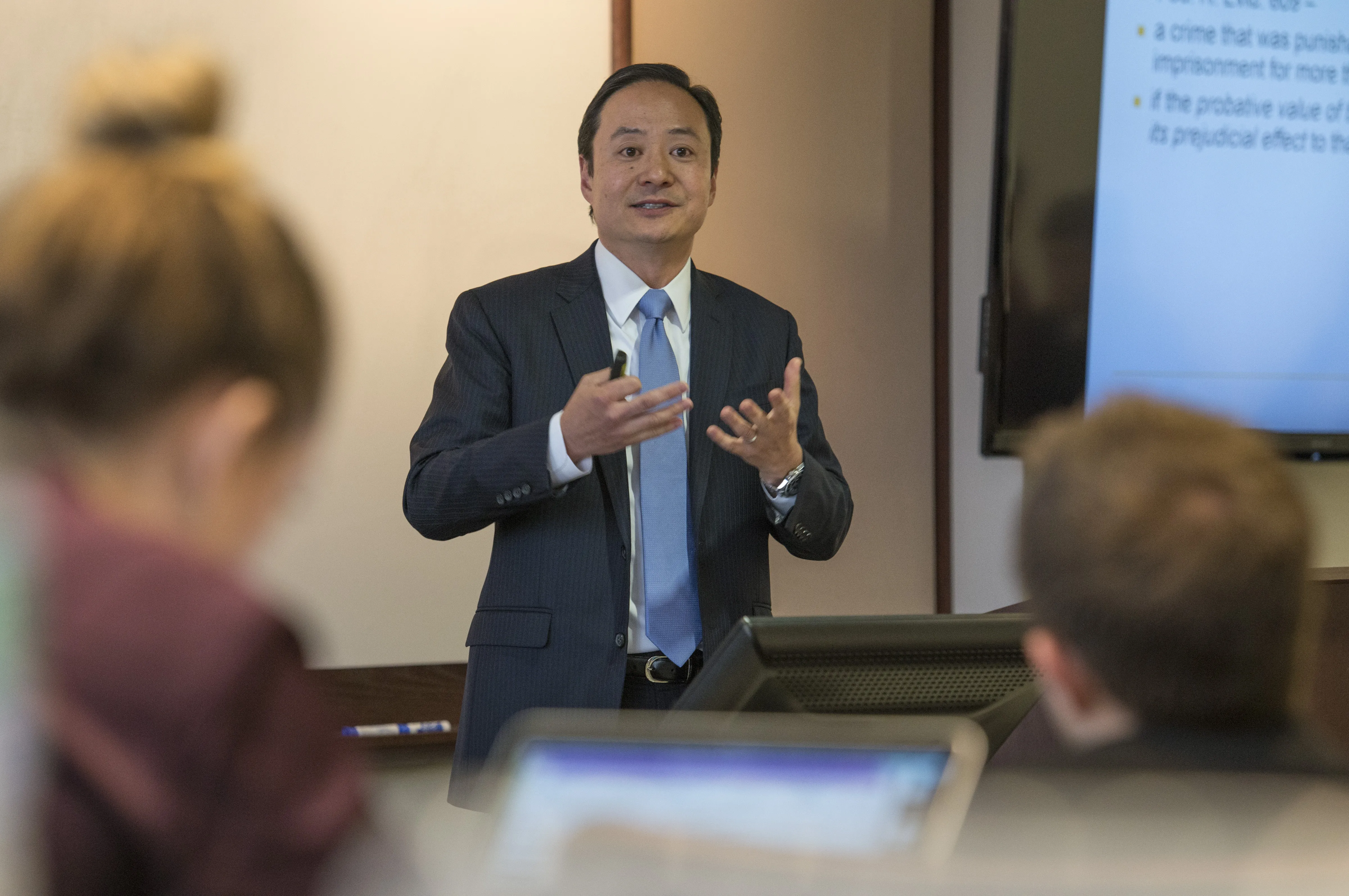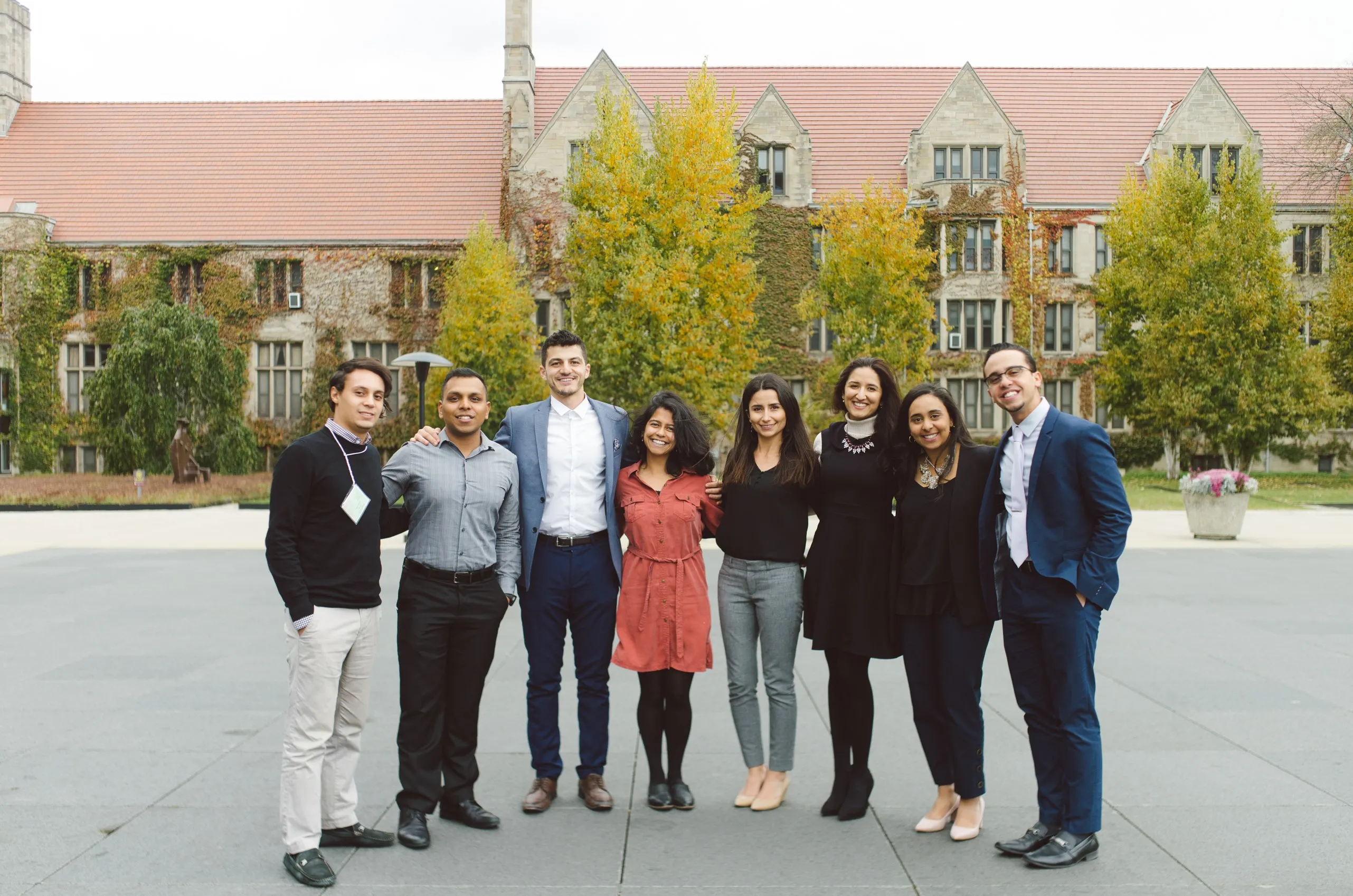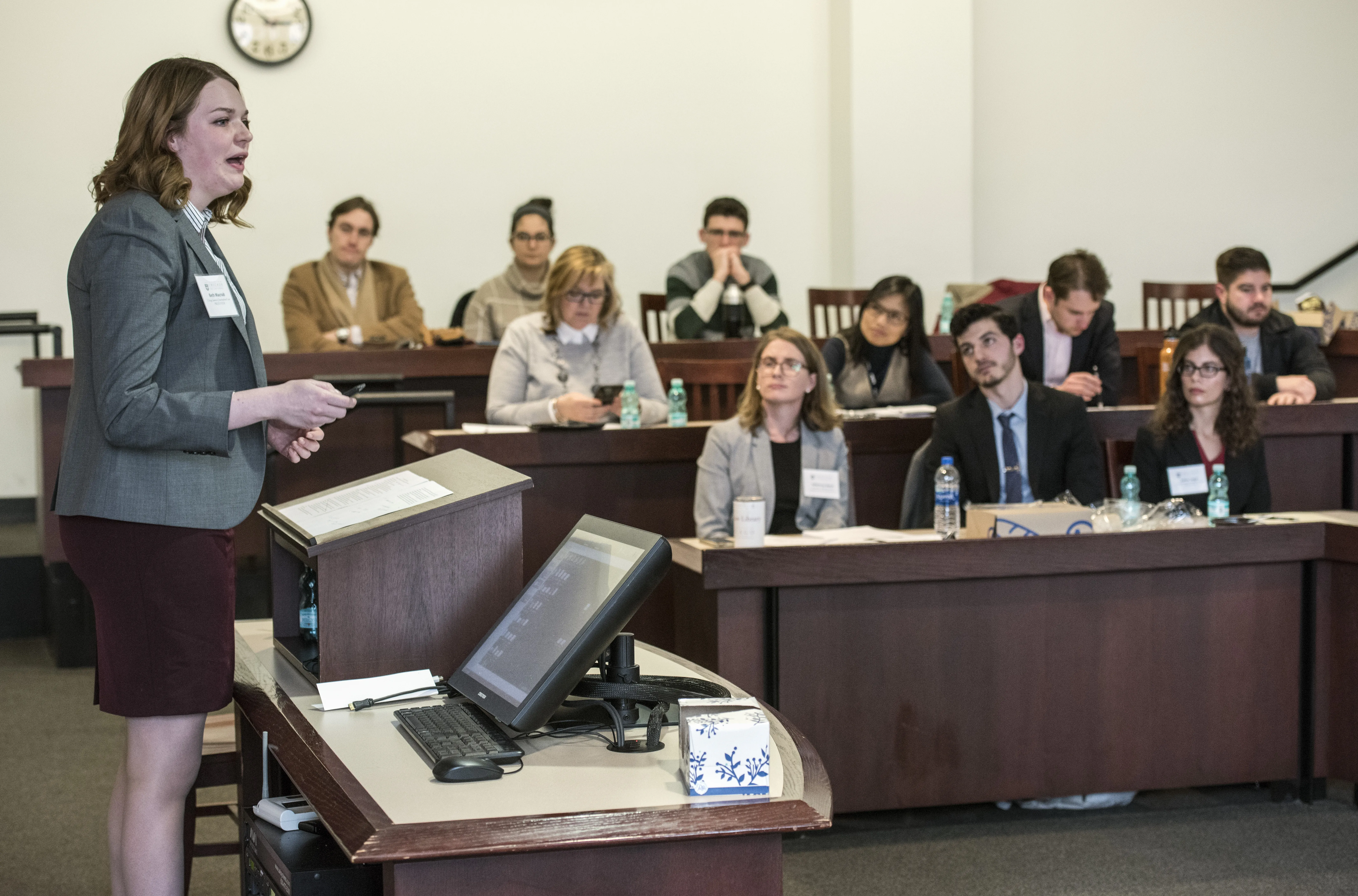Judicial Discretion in the District Courts

The life of a United States district court judge is filled with discretion, appearing as early as the discovery phase of a case all the way through to final judgment and sentencing. This reality is one that lawyers would be wise to remember in litigation, the Honorable John Z. Lee told an audience of University of Chicago Law School students, faculty, and staff in January.
“When lawyers appear before me, they too often cite a case or two and argue that those cases require me to arrive at one particular result,” he said. “Now, sometimes that might be true, but those cases are the substantial minority. A great deal of my decisions are discretionary.”
Lee, the first Korean-American Article III federal judge appointed to the Northern District of Illinois, spoke as part of the Law School’s Edward H. Levi Distinguished Visiting Jurist program, which was created six years ago to support interactions between the judges and the school’s faculty and students.
A variety of factors, Lee argued, play a role in the decisions made at the district court level. For example, two criminal defendants may have the same sentencing range, but one had a rough upbringing while the other grew up in a stable, wealthy home. How should a judge consider this and the many other factors at play? A number of statutory factors such as the need for deterrence, punishment, incapacitation and rehabilitation, all weigh heavily in a sentencing decision, Lee said.
“There’s a range of ‘right’ answers here,” Lee said, “and the district court’s job is to decide upon an appropriate sentence based upon the individual judge’s discretionary weighing of these factors.”
Lee went on to explain that in civil cases, much of a district judge’s discretion originates from the Federal Rules of Civil Procedure themselves.
“The FRCP draw their essence more from the discretionary background of equity,” he said, pointing to the prevalence of words such as “justice” and “good cause” throughout the rules’ texts.
This is particularly important in the granting or denying of motions, the judge argued.
Motions to amend a complaint, to compel discovery, and more cross a judge’s desk daily, and it is up to the judge to consider a variety of factors to keep litigation running smoothly.
“All of these motions are entrusted to the court's discretion,” he said, “and all of them can have significant consequences to the parties in litigation.”
Lee said he learned about such consequences firsthand as a litigator before he joined the federal bench. He started his legal career as a trial attorney in the Department of Justice’s Environmental and Natural Resources Division before becoming a law firm associate in 1994. He was a partner litigating at Freeborn & Peters when President Obama nominated him to the Northern District of Illinois in 2011.
His history as a litigator—and reading a judicial opinion or two—helped shape his approach to opinion writing. He knows his audience: lawyers who are very, very busy.
“I’m not writing to win the Nobel Prize in Literature,” he joked.
Lee noted that there is much scholarly debate as to the appropriate degree of discretion district judges should have. “Is it a good thing or a bad thing? A more practical question, given where we are, might be what does this mean for lawyers who practice in front of district judges?” he asked.
It means, Lee said quoting a retired district judge, lawyers should aim to “convince a judge’s heart first, and then the head.”
He tells lawyers that when an issue involves a district court’s discretion, they should “focus on convincing the judge that their position is the just one and then convince the judge that the law allows the judge to reach that decision.”
To be effective, Lee added, lawyers should remember a term that is “somewhat verboten” in law school classroom discussions, but regularly built into the statutory schemes of the law: fairness.
“Fairness often plays a very important and very significant role,” he said. “It should not be overlooked by lawyers, or by students who will one day become lawyers.”


